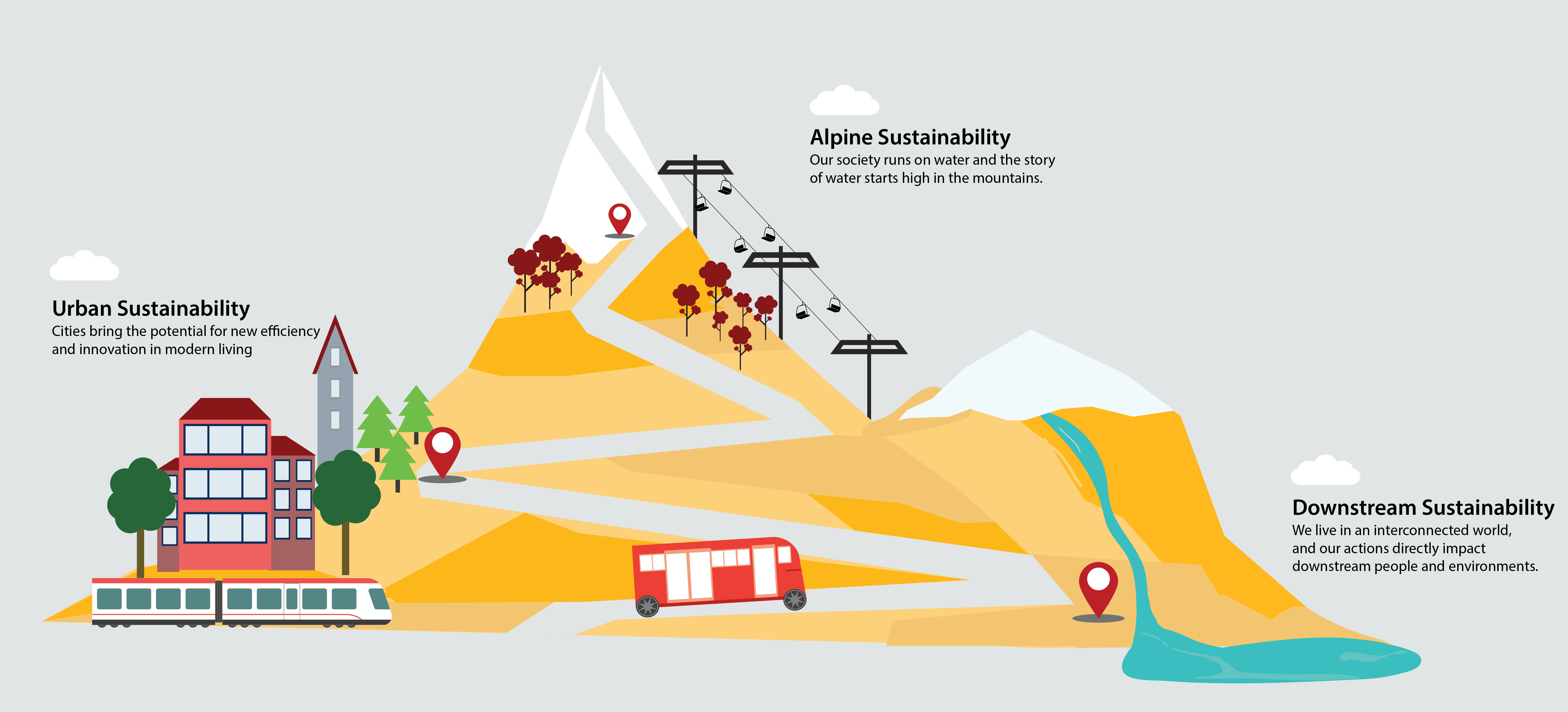
The GCSC’s primary goal is to sustain a strong faculty community. We connect faculty from across campus to catalyze interdisciplinary research.
We amplify collaborations to build a more sustainable world, using local issues to address global questions.
Find Researchers
Use the sustainability inventory search tool to see which faculty are conducting research and teaching in environmental change, energy, air quality, water, and more.
Learn More
Campus Sustainability Events Calendar
Learn More

Faculty Forum – Air Quality | March 4, 2025
We will hold a faculty meet-and-greet to help build a stronger community around this highly interdisciplinary topic.
Areas of Research We Amplify
AIR QUALITY
Learn More
SNOW
Learn More
WATER
Learn More
ECOLOGY
Learn More
ENERGY
Learn More
BUILT ENVIRONMENT
Learn More
MOBILITY
Learn More
NATURE & CULTURE
Learn More
Join the Global Change and Sustainability Center

